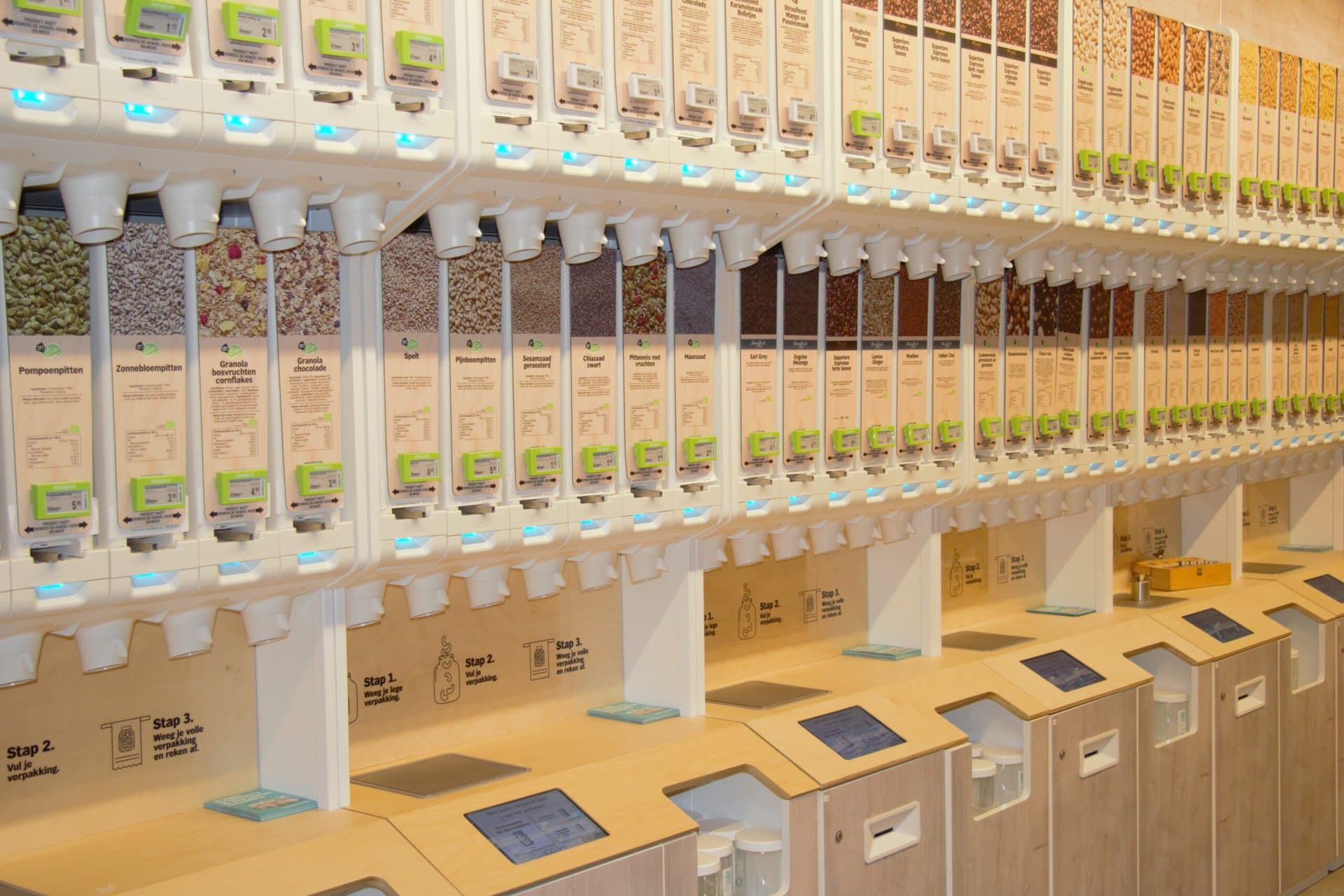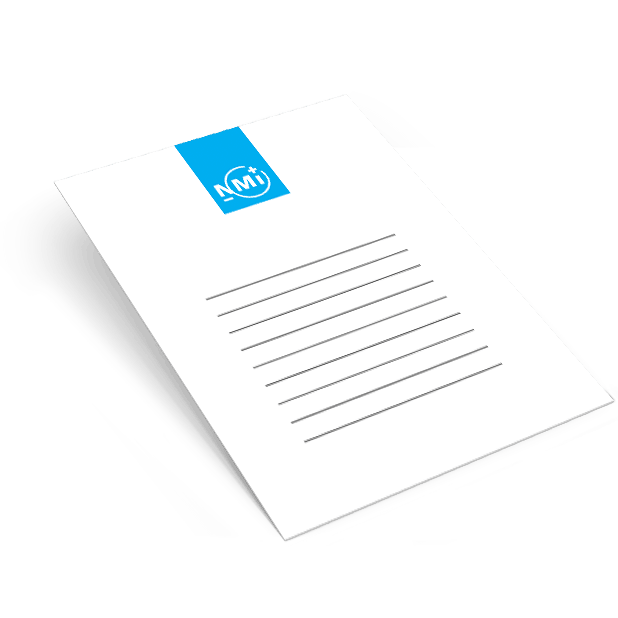
11 Jul Refillable Groceries: a Metrology Perspective
Refillable groceries: a metrology perspective
11 July 2022
Delft, The Netherlands — 11 July 2022. The dawn of package-less supermarkets is upon us, and with it, the amount of weighed produce increases. What steps do manufacturers need to take for consumers to ensure they pay a fair price for what they weigh?
As supermarkets look for ways to up their sustainability efforts and cut down on unnecessary plastic packaging, many now explore the introduction of refill stations into their stores. These stations allow consumers to bring and use their own containers to fill for purchase of dried goods such as pasta, cereal and nuts. Dutch chain Albert Heijn is the latest to make their mark, with their AH Packaging Free stores that use dispensers for over 70 different products.
Of course, for most shoppers, the experience of using self-service scales for ‘loose’ goods is nothing new, but this has been limited to fruit and vegetables. With the range of package-less products now expanding, weighing procedures take on an added importance. By providing EU type examination certificates, NMi helps manufacturers respond to this growing need for accurate and reliable weighing scales.
Conducting high-standard conformity checks
As a Notified Body, NMi’s fundamental role is to ensure that the weight indicated by the machine – and the price consumers pay for a product – is as accurate and fair as possible. The first step is performing a conformity check on the devices to determine if the units perform to the manufacturer’s specification. This includes, among other things, a software test to determine if it is up-to-date and if the weight information is accurate and correctly displayed. NMi can also certify manufacturers to undertake their own initial verifications, according to a quality system, thereby saving time and money in the production process.
An important part of the conformity check is establishing whether a weighing instrument falls within the right maximum permissible error (MPE) category, which is a sure-fire method of guaranteeing its accuracy. To do this, we need to know the verification scale interval – or e value – which is the smallest interval that can be used to calculate the price based on weight in commercial transactions. In this instance, the e value is 2g, meaning that the scale is tested in increments of 2g. From 0g to 1kg the MPE is +/-1g, from 1kg to 4kg +/-2g, and 4kg to 6kg +/-3g.
What are the challenges involved?
The rise of more package-less products and the introduction of dispensers is an evolution of current supermarket practices, given that self-service scales are already a recognisable device for most consumers. As such, existing legislation already covers the new scales that will be used in refill stations.
However, there is a potential weight-related loophole that supermarkets will need to prevent. If consumers bring their own containers, each scale will require a tare button to account for this extra weight. There must, therefore, be an element of trust that the consumer won’t first fill up their containers before zeroing them, and so getting their produce free of charge. Once again, from a Notified Body perspective, certifying the tare function on scales does not pose an issue.
For countries like the Netherlands, there is no legal obligation for the scales to be regularly reverified. However, supermarkets are responsible for ensuring these scales remain well-maintained and their accuracy retains the same standard year on year. Ongoing maintenance by the manufacturer promotes compliance should the government conduct spot inspections of their weighing instruments – which they’re entitled to do – and supports consumer confidence in the reliability and subsequent prices paid.
NMi ready to take on a supporting role
For supermarkets and manufacturers, it’s an exciting time: shopping continues to evolve into a more efficient, environmentally responsible experience. However, to maximise the benefits of package-less options, dispensers and scales must be compliant to ensure consumer confidence and buy-in. Notified Bodies such as NMi play an essential role in supporting manufacturers in maintaining accurate weighing equipment and the best service to consumers.




